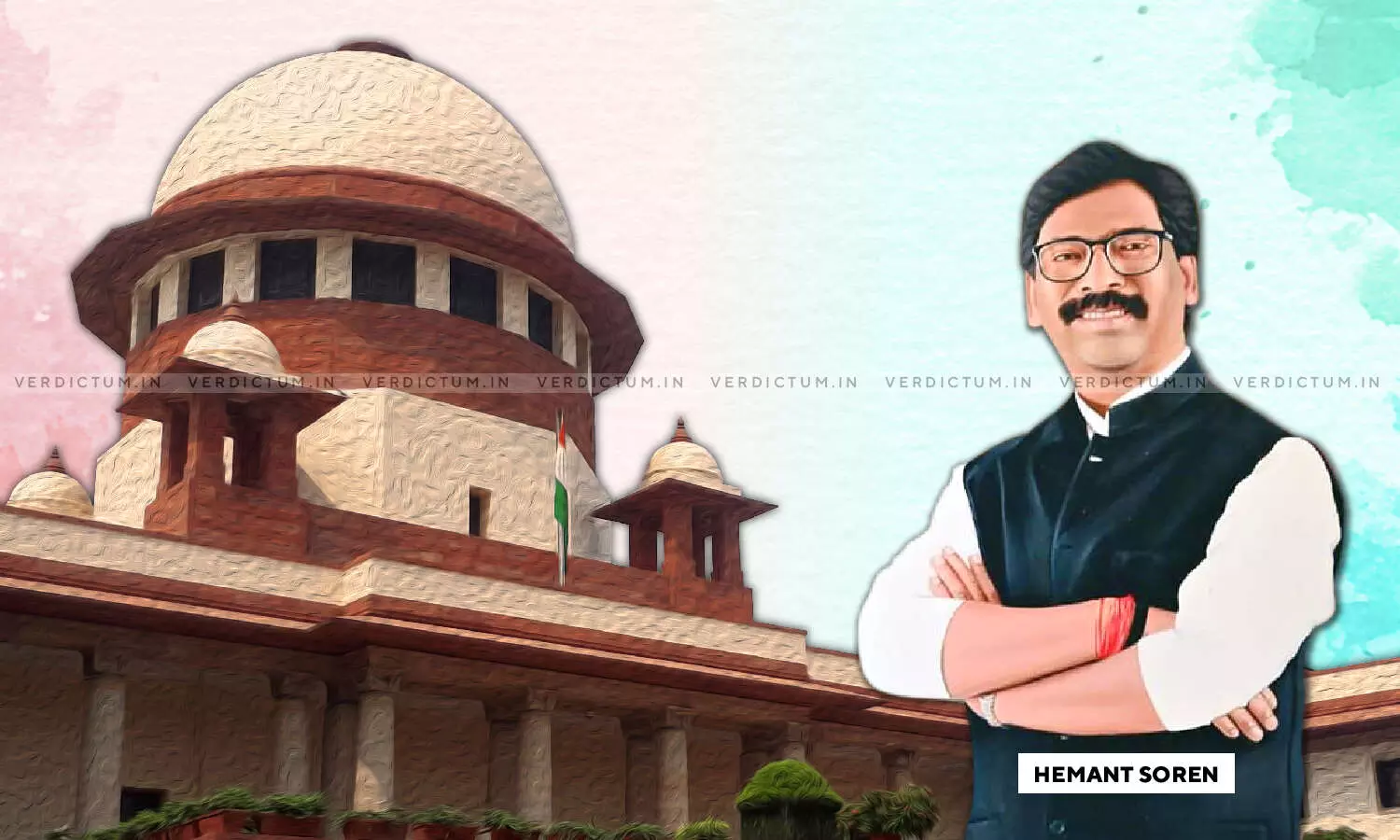
Purpose Of PIL Is To Help Cause Of Minorities: Jharkhand Govt Opposes PIL In SC On Deportation Of Illegal Immigrants
 |
|The purpose of public interest litigation is to help the "minorities" and "disadvantaged groups", the Jharkhand government has told the Supreme Court while opposing a PIL seeking a direction to the Centre and the states to "identify, detain and deport" illegal immigrants from the country.
The reply of the JMM-Congress-RJD coalition government in Jharkhand has been filed in response to a PIL by lawyer and BJP leader Ashwini Kumar Upadhyay, who has sought a direction to the Centre and the states to identify, detain and deport all the illegal immigrants and infiltrators, including Bangladeshis and Rohingyas.
In the 15-page affidavit, filed through Prashant Kumar, Inspector General, Special Branch, Jharkhand Police, the state government has said moreover, there is already a mechanism in place for setting up detention centres, holding centres and camps in various states to restrict the movement of illegal immigrants or foreign nationals.
The Jharkhand government has also set up a model detention centre in Hazribagh district, it has pointed out.
"The purpose of public interest litigation is to use the law to advance human rights and equality or raise issues of broad public concern in order to help the cause of the minorities or the disadvantaged groups and individuals," it has said and referred to a Supreme Court judgment on PILs.
"The issue of citizenship has to be decided according to the provisions of the Citizenship Act and the Foreigners Act. It is only after this application of law that the deportation, relocation, repatriation or rehabilitation etc. can take place," the state government has said.
Seeking dismissal of the PIL, it has said the "alarming scenario" sought to be created by the petitioner is based on "misconceived speculation and without any substance".
Referring to a 2014 letter of the Union Ministry of Home Affairs (MHA), the affidavit has said, "It was stated that the central government was empowered under section 3(2)C of the Foreigners Act, 1946 to make orders providing that no foreigner shall remain in India or any prescribed areas therein."
Earlier, the Karnataka government had told the apex court that it would "scrupulously" follow the orders to be passed on a PIL seeking a direction to the Centre and the states to "identify, detain and deport" illegal immigrants.
The PIL has also sought a direction to the Centre and the states to "amend the respective laws to make illegal immigration and infiltration a cognizable, non-bailable and non-compoundable offence".
"The illegal immigrants, particularly from Myanmar and Bangladesh, have not only threatened the demographic structure of bordering districts, but have seriously impaired security and national integration," it has said.
Upadhyay's plea has alleged that there was an organised influx of illegal immigrants from Myanmar through agents and touts via West Bengal, Tripura and Guwahati in Assam.
"This situation is seriously harming the national security of the country," it has said.
With PTI inputs